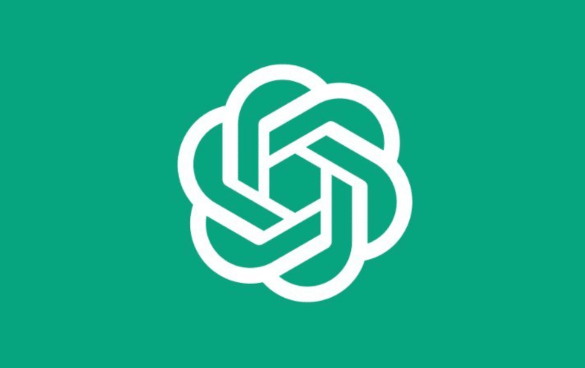-
 Published: Jun 15, 2023
Published: Jun 15, 2023
-
 7 min. read
7 min. read
-
 Maria Carpena
Maria Carpena Emerging Trends & Research Writer
Emerging Trends & Research Writer
- Maria is an experienced marketing professional in both B2C and B2B spaces. She’s earned certifications in inbound marketing, content marketing, Google Analytics, and PR. Her favorite topics include digital marketing, social media, and AI. When she’s not immersed in digital marketing and writing, she’s running, swimming, biking, or playing with her dogs.
Customer journey map definition: A customer journey map is a visual representation of the stages customers go through when interacting with your business — from identifying their needs to finding your company, purchasing from you, and requesting after-sales support.
If you want to attract prospects to your business and smoothly convert them into customers, you must provide a pleasant experience at critical touchpoints. A customer journey map lets you do that by identifying the crucial touchpoints with your audience and helping you craft a journey that entices them to do business with you.
This blog post will discuss these topics so that you can get started with mapping your customer journey and improving customer experience, which leads to revenue growth:
- What is a customer journey map?
- The benefits of a customer journey map
- 5 elements of a customer journey map
- How to create a customer journey map
While you’re here, subscribe to our free weekly newsletter to get the latest tips on providing excellent customer experience delivered straight to your inbox!
Download Now: Free Customer Journey Map
What is a customer journey map?
A customer journey map is a visual representation of the stages customers go through when interacting with your business — from the moment they identify their needs to finding your company, purchasing from you, and requesting after-sales support.
What are the benefits of a customer journey map?
A customer journey map can help you improve your customer experience with your brand, increase conversion rates, and foster retention.
It uncovers insights into the customer journey: How did they find your business? What convinced them to learn more about your offering? What made them abandon their cart at the last minute?
A customer journey answers these questions and more. That said, it provides the following benefits:
- Encourage prospects and customers to engage with your business.
- Identify ineffective customer touchpoints.
- Craft marketing campaigns that resonate with your target customer persona
Explore More: How to Map a Sales Call
5 elements of a customer journey map
Before we go into the details of creating a customer journey map, let’s go through a customer journey map’s five essential elements:
- Customer journey stages
- Customer touchpoints
- Touchpoint owners
- Customer’s needs or pain points
- Customers’ actions and emotions
Let’s go through each one:
1. Customer journey stages
To better understand your customers’ needs, segment the customer journey into different stages:
| Customer journey stage | What happens in this stage | Strategies you can employ |
| Awareness | Your audience becomes aware of their problem and starts looking for solutions | Educational content like how-to articles, guides, blog posts, and informative videos |
| Consideration | Your audience is aware of products that can solve their problems. They compare different brands and solutions | Product comparison guides and infographics, case studies, and customer testimonials |
| Decision | Prospects have selected a solution and converted into customers | Free product demos and consultation |
| Retention | Customers have purchased from you and decided to repurchase from you | Chatbot and live chat through which they can contact customer service, knowledge library |
| Loyalty | Customers promote your brand to their friends and colleagues | Referral programs, special perks for loyal customers, and ensuring your products and services address your customers’ evolving needs |
2. Customer touchpoints
Customer touchpoints are interactions that your company has with a customer. Did they visit your website? Did they engage with your social media post?
These are examples of customer touchpoints which affect how prospects perceive you. If you provide a pleasant customer experience on your website, your prospects might likely consider purchasing from you.
Aside from your website and social media pages, other examples of customer touchpoints are:
- Advertisements
- Phone calls
- Emails
- In-store visits
3. Touchpoint owners
Your customer journey map must identify the teams responsible for different stages or touchpoints.
Let’s say your medical equipment business is running a lead generation campaign on LinkedIn. Your marketing team oversees the lead generation campaigns, while the sales team is responsible for nurturing your leads.
Your sales and marketing teams may have different responsibilities, but both teams must know the customer’s attitude toward your business at different stages.
4. Customer’s needs or pain points
Your customer journey map must also include your customer’s needs or pain points. What problem did they want to solve with a product or service you offer?
A customer journey map gives you insights into how you can streamline the experience for your prospects. Improving the experience can help you retain existing customers and gain new ones.
Do note that your different products may have different customer journey maps.
5. Customers’ actions and emotions
What do your customers feel and do during their journey? Your customers’ emotions toward your ad or website may lead to either churn or retention.
Explore: What is Automated Journey Logic?
How to create a customer journey map
Now that you know the different elements of a customer journey map, let’s go through the step-by-step process of creating a customer journey map:
- Identify your objectives
- Create your buyer personas
- Define your customer touchpoints
- Map the current customer journey
- Identify opportunities to improve your customer journey
Let’s dive into the details:
1. Identify your objectives
First off, determine your goals for creating a customer journey map. Here are a few guide questions:
- Who are the customers involved?
- Why should customers buy your specific product?
- How will customers purchase from you?
- How can you improve the customer experience?
2. Create your buyer personas
A buyer persona is a semi-fictional representation of your customer. You may have multiple buyer personas for a particular product. Here are some guide questions when you’re developing your buyer personas:
- Who are your existing customers?
- Who is your target audience on your various marketing channels?
- Why do your customers buy from you?
- What problems are your product or service solving for the different buyer personas?
3. Define your customer touchpoints
Your customer journey map comprises multiple touchpoints, which are how and where your customers interact with your brand. When defining your touchpoints, identify your customers’ emotions and actions.
Do note that the number of touchpoints depends on the nature of your business. If you’re in the business of heavy equipment rentals, your customer journey map may differ from a hotel and resort business.
4. Map the current customer journey
Once you’ve identified all your customer touchpoints, map them out along with the emotions and actions of your customers.
Look for patterns at different touchpoints. For example, when they interact with your product page on the website, do they sign up as a lead, or do they leave? When they see your ads on social media, do they engage with them or visit your profile?
Identifying how your customers respond at each touchpoint will inform you which touchpoints lead them close to purchasing or which are ineffective.
5. Identify opportunities to improve your customer journey
Now that you know which touchpoints lead to conversion and which cause friction in the customer experience, you can improve your customer journey map.
Involve the other stakeholders within your company so you can analyze and improve critical touchpoints. If your prospects become highly interested in your products after a visit to your brick-and-mortar store, what are the best practices that your sales reps employ? When you see site visitors bouncing off your page, identify what’s causing them to leave pages that are important for conversion.
You can also use customer experience management software to analyze your customers journey.
Create your customer journey map with WebFX
Customer journey mapping helps you ‘audit’ your customer experience and improve it to attract more prospects and close more deals. If you need help with customer journey mapping, let WebFX help.
We’re a full-service digital marketing agency with over 29 years of experience in 200+ industries. Combining the expertise of our team members with our proprietary growth platform RevenueCloudFX, we deliver results that grow your bottom line.
Contact us online or call us at 888-601-5359 to speak with a strategist about our digital marketing services!
-
 Maria is an experienced marketing professional in both B2C and B2B spaces. She’s earned certifications in inbound marketing, content marketing, Google Analytics, and PR. Her favorite topics include digital marketing, social media, and AI. When she’s not immersed in digital marketing and writing, she’s running, swimming, biking, or playing with her dogs.
Maria is an experienced marketing professional in both B2C and B2B spaces. She’s earned certifications in inbound marketing, content marketing, Google Analytics, and PR. Her favorite topics include digital marketing, social media, and AI. When she’s not immersed in digital marketing and writing, she’s running, swimming, biking, or playing with her dogs. -

WebFX is a full-service marketing agency with 1,100+ client reviews and a 4.9-star rating on Clutch! Find out how our expert team and revenue-accelerating tech can drive results for you! Learn more
Try our free Marketing Calculator
Craft a tailored online marketing strategy! Utilize our free Internet marketing calculator for a custom plan based on your location, reach, timeframe, and budget.
Plan Your Marketing Budget
Table of Contents
- What is a customer journey map?
- What are the benefits of a customer journey map?
- 5 elements of a customer journey map
- 1. Customer journey stages
- 2. Customer touchpoints
- 3. Touchpoint owners
- 4. Customer’s needs or pain points
- 5. Customers’ actions and emotions
- How to create a customer journey map
- 1. Identify your objectives
- 2. Create your buyer personas
- 3. Define your customer touchpoints
- 4. Map the current customer journey
- 5. Identify opportunities to improve your customer journey
- Create your customer journey map with WebFX

Proven Marketing Strategies

Proven Marketing Strategies
Try our free Marketing Calculator
Craft a tailored online marketing strategy! Utilize our free Internet marketing calculator for a custom plan based on your location, reach, timeframe, and budget.
Plan Your Marketing Budget
What to read next






